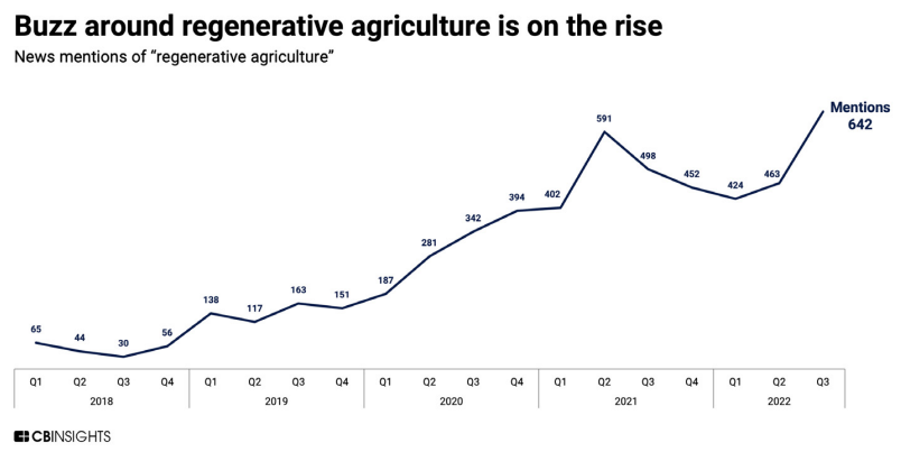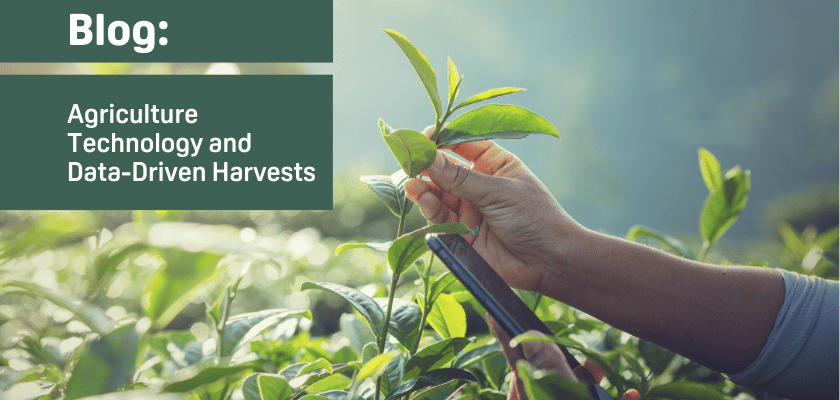
Regenerative agriculture restores soil health and prevents erosion through various practices such as planting trees among crops, avoiding synthetic fertilizers and pesticides, and using rotational grazing techniques. While industrial farming, which many brands and retailers rely upon, is estimated to account for roughly 30% of global carbon emissions, 70% of freshwater use, and 60% of biodiversity loss, the need to invest in regenerative agriculture is imminent and several major fashion and food companies have already started, including Patagonia, Allbirds, Nestlé, General Mills, and PepsiCo.
Although the demand is growing, challenges are also present such as the difficulty to manage the transition on a large scale and the requirement for a fair amount of upfront investment to convert the land. Regardless, companies such as Doktar tackle these challenges in creative ways with various products and the power of data, attempting to reduce the cost of moving towards sustainability in agriculture while maximizing yield.
Doktar’s CropMap helps agricultural businesses make the right operational decisions by measuring market volume and plantation area. While the Orbit mobile app increases efficiency and helps with field scouting and crop health monitoring, Filiz Agricultural Sensor Station informs spraying and irrigation decisions that reduce unnecessary pesticide and water usage. PestTrap detects pest population density to recommend the right pesticide at the right time and eliminate the redundant and wrong uses of pesticides. Together these products help manage risk on the field, enabling a smoother cultural shift towards regenerative practices. As agriculture changes, it’s crucial to make it more affordable for farmers to implement regenerative agricultural practices. Looking ahead to 2023, expect investor interest in startups that offer technological solutions to this shift to be on the come up.
For those interested in exploring how Doktar's innovative solutions can transform your agricultural practices, visit our website for detailed information on all our products. Stay updated with the latest developments by following us on Instagram and LinkedIn, where we share insights, tips, and updates about our technologies and their impact on modern farming.





